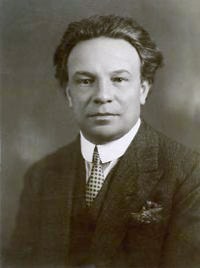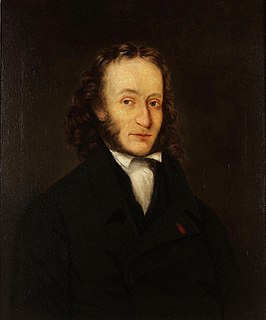A Quote by Ottorino Respighi
A review of his work: His music soon spread throughout Europe, and he was invited to America were he performed the Piano Concerto. He would have wished that he would be remembered as an opera composer, but it was to be his orchestral extravaganzas, mainly the trilogy of Roman pictures that has made his name famous.
Related Quotes
Every man should write a brief history of his life: his parentage, his birth, his religion, when he was baptized and by whom, when ordained, what to, and by whom-give a brief sketch of all his missions and of all his official acts and the dealings of God with him. Then if he were to die and the historians wished to publish his history, they would have something to go by.
I discovered several never-failing signs by which one might know when a man wished to take another wife. He would suddenly 'awaken to a sense of his duties'; he would have serious misgiving as to whether the Lord would pardon his neglect in not living up to his privileges; he would become very religious, and would attend to his meetings ... which seemed just then to be very numerous, and in various other ways he would show his anxiety to live up to his religion.
[Miranda Hentoff] was teaching once at Lincoln Center, and the hall was full of other professionals - musicians, professors, teachers. And she was explaining how [Béla] Bartok composed his second piano concerto. And she explained how the music was interwoven with the rhythms and what he had in his mind. And I was just stunned. This is a kid who used to work - on a piano with a cracked keyboard.
When a man sought knowledge, it would not be long before it could be seen in his humbleness, his sight, upon his tongue and his hands, in his prayer, in his speech and in his disinterest (zuhd) in worldly allurements. And a man would acquire a portion of knowledge and put it into practice, and it would be better for him than the world and all it contains - if he owned it he would give it in exchange for the hereafter.
On December 12, 1829, Paganini wrote his friend Germi: "The variations I've composed on the graceful Neapolitan ditty, 'Oh Mamma, Mama Cara,' outshine everything. I can't describe it!" He was writing from Karlsruhe, in the midst of his triumphal tour through Germany. That letter marks the earliest known mention of the variations that would become famous as "The Carnival of Venice." At the time of his letter, Paganini had already performed the piece in at least four concerts. From then on, it would be one of his most popular compositions.
Our Lord's miracles were all essential parts of His one consistent life. They were wrought as evidences not only of His power, but of His mercy. They were throughout moral in their character, and spiritual in the ends contemplated by them. They were in fact embodiments of His whole character; exemplars of His whole teaching, emblems of His whole mission.
We turned onto the last landing. Going out with this guy, I thought, would involve a lot of silly laughter, some wit--the buzz of his whispered wisecracks in my ear. But there would be as well his willingness to reveal, or more his inability to conceal, that he had been silently rehearsing my name as he climbed the stairs behind me. There would be his willingness to bestow upon me the power to reassure him. He would trust me with his happiness.
He was afraid that the secrets she'd kept would always be here, inside him, an ugly malignant thing lodged near enough to his heart to upset its rhythm, and though it could be removed, cut out, there would always be scars; bits and pieces of it would remain in his blood, making it wrong somehow, so that if he accidentally sliced his skin open, his blood would--for one heartbeat--flow as black as India ink before it remembered that it should be red.








































